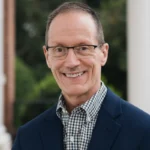In my years of church consulting, no church leader has said to me, “Our church really doesn’t want to do the Great Commission.” I’ve worked with many churches, though, that proclaim the Great Commission but never get around to doing it. Here are my conclusions about why churches so often fit this description.
1. Church leaders talk the language without letting the biblical texts “sink in.” I suspect many leaders echo the words of the Great Commission out of evangelical habit more than out of heartfelt burden. When we proclaim the message without obeying the command, the words have not settled firmly in our heart.
2. Pastors are themselves not committed to this task. I have never seen a Great Commission church led by a pastor who was not himself deeply committed to the task. Unless a pastor bleeds for his neighbors and the nations to know Christ, the church he leads will not live out this burden, either.
3. Churches see the Great Commission as a task for full-time ministers or missionaries. This finding reflects a problematic clergy/laity divide in many churches, but we church leaders must take some responsibility here. Because we so often choose not to make disciples and delegate responsibilities, we propagate the idea that only “paid folks” can do this work.
4. Churches do not really believe nonbelievers are lost. If you want to find out what your church members believe, survey them anonymously. Find out what they believe about the fate of those who die without hearing about Jesus. You might discover many church members have a theology that does not require taking the gospel to the nations.
5. Some leaders settle with partial obedience to the Great Commission. Some churches focus on evangelism while failing to teach believers. Others emphasize discipleship but do not evangelize. Some influence their community but never touch the nations; others focus on global needs but miss their local community. These congregations may be partially obedient to the Great Commission – but partial obedience is also disobedience at some level.
6. Church members fail to see the world around them. The world is among us – as our neighbors, our co-workers, our store clerks, our teachers – but we fail to see them as sheep without a shepherd (Matt 9:36). At a minimum, seeing our neighbors with God’s eyes should cause us to pray for the world represented among us.
7. Church members don’t know missionaries. We know that mission work matters, but many church members have never “put on a face on” that work. Frankly, I lay this responsibility at the feet of church leaders as well: Great Commission pastors will introduce their church to Great Commission people.
8. Churches confuse “sheep swapping” with the Great Commission. Transfer growth is seldom Great Commission growth. If a church is not reaching non-believers, baptizing them, teaching them to obey Jesus’ commands, and taking the gospel to the nations, they are not doing the Great Commission. They may, in fact, be only talking about it.
Which of these reasons most reflects your church? What other reasons would you add?
*This article was originally published December 2020 at chucklawless.com




No comments have been added.